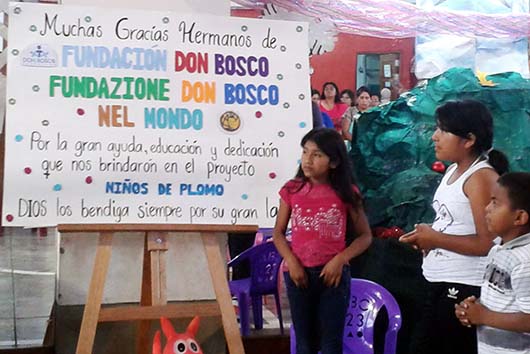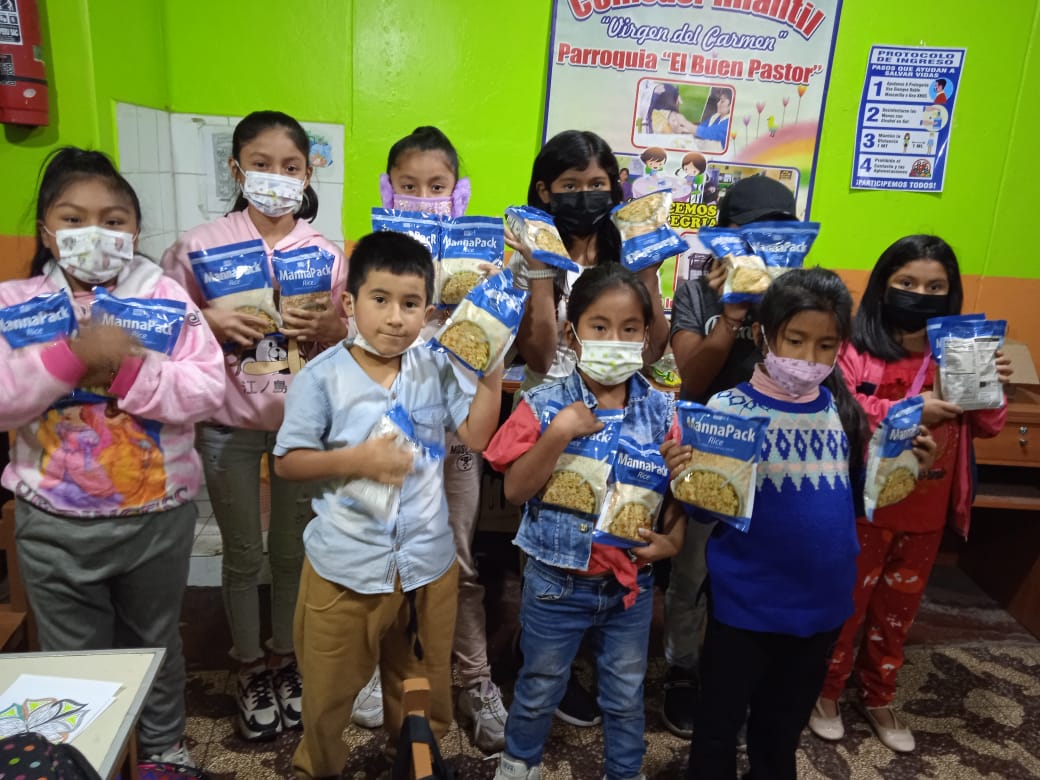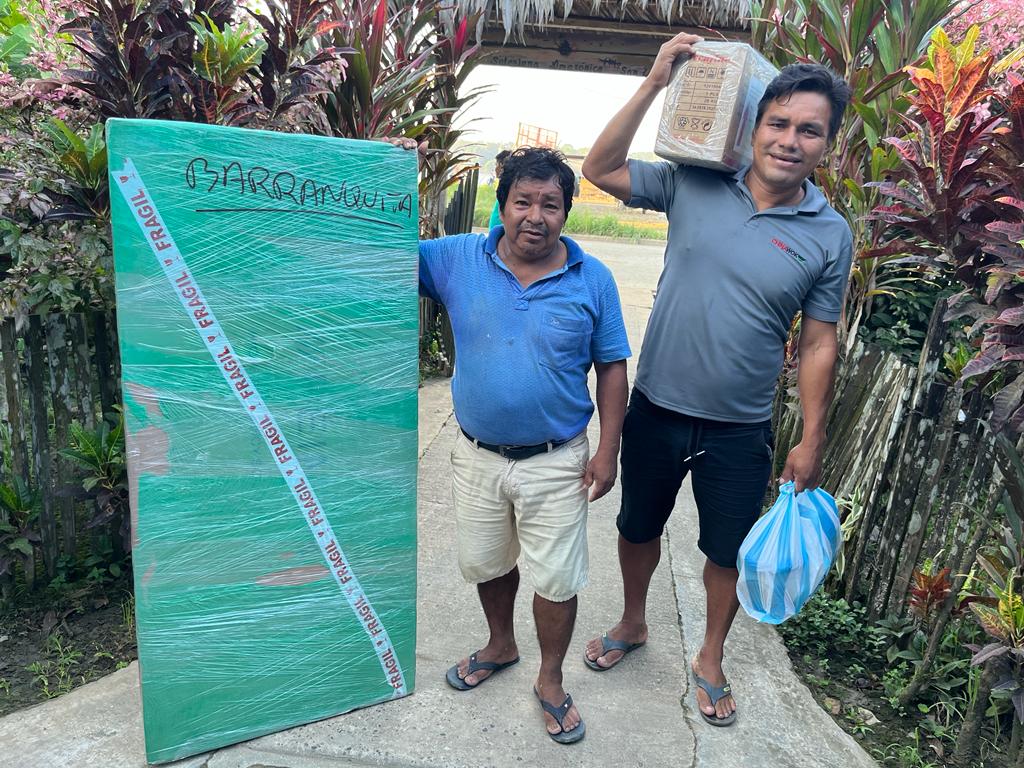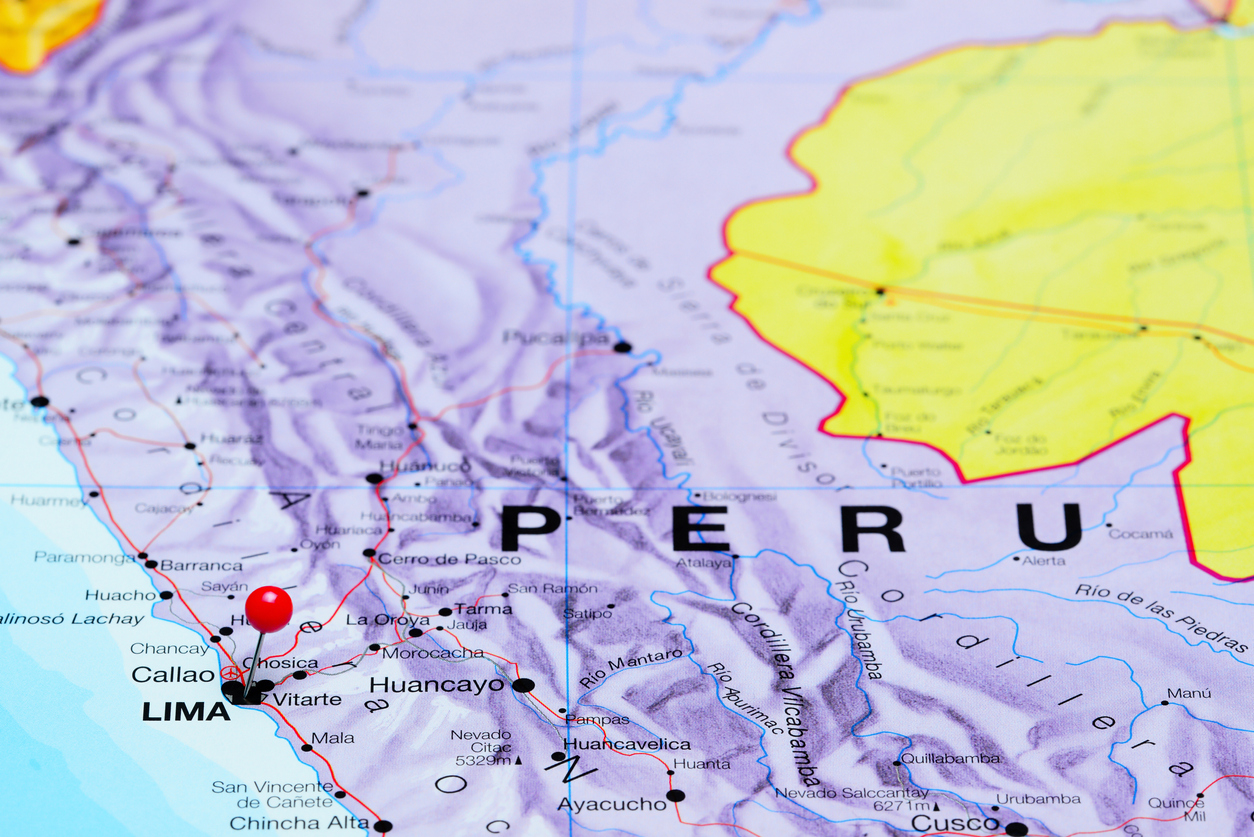PERU: Salesian Missionaries Provide Education and Safety in Violent Community

(MissionNewswire) Salesian missionaries operate the San Juan Bosco Children’s Home within the community of Puerto Nuevo near the city of Callao, a major seaport in Peru. Recently, the Peruvian government declared Callao an emergency zone because of the level of violence, death and drug dealing affecting the city. Complicating the situation are the dozens of gangs who operate in the region stealing, dealing in drugs and carrying out murder for even small amounts of money.
Given the struggles in the community, many families turn to Salesian programs for safety, education and social programs. Students taking part in educational programs at the San Juan Bosco Children’s Home concluded their 2015 studies with a presentation of their accomplishments to Salesian staff and administrators. During the presentation, students played the guitar, sang and danced as well as showed off their new computer skills and academic achievements.
The Children’s Home facilitates the Children of Lead project which is supported by the Don Bosco in the World Foundation and serves more than 80 youth from the area who have high levels of lead in their blood.
Puerto Nuevo’s population is contaminated by lead as a result of the environmental damage generated by the storage and transportation of lead ore to the community’s port. Most of the children participating in the Children of Lead project have levels of lead close to 19.9 micrograms per deciliter in their blood. This level is considered highly dangerous and can cause children to suffer cognitive delays.
Salesian missionaries who operate the Children of Lead project provide education and skills training opportunities to the participating children and adolescents while addressing their behavioral and cognitive difficulties. Often because of their cognitive and emotional difficulties, these students struggle in traditional classrooms and are less likely to achieve the higher levels of education necessary to break the cycle of poverty. The project provides specially trained staff to work with the students and also provides the expertise of a psychologist on staff.
The Children of Lead project aims to improve students’ educational outcomes through tutoring in reading, math and other academic subjects while simultaneously offering workshops in interpersonal communication, logic and educational psychology. Activities that include music and dance are also offered through the project and are designed to boost participants’ physical, mental and emotional development. In addition, participants have access to computer classes using online programs and games that help them develop reason and literacy as well as useful technological skills.
“In an economically depressed area where jobs are scarce and future opportunity bleak, adults in Puerto Nuevo face an almost unimaginable choice,” says Father Mark Hyde, executive director of Salesian Missions, the U.S. development arm of the Salesians of Don Bosco. “They can refuse paid work and risk the effects of long-term poverty or they can reluctantly support the presence of mines and refineries at the risk of their children’s health. The immediate need to feed, clothe and shelter their families trumps any consideration of long-term well-being so Salesian missionaries work to help in whatever way they can.”
Peru faces high levels of income inequality and has more than a quarter of its population living in poverty, according to the World Bank. Poverty levels are significantly higher in rural areas but urban areas struggle most with inequality, most notably metropolitan Lima. Poverty in the country is made worse by a shortage of productive farmland and a lack of job skills among women entering the workforce as well as a lack of adequate housing, nutrition and education.
Peru has also been plagued by hunger and disaster. According to the World Bank, close to 25 percent of children in the country are chronically malnourished. Communities continue to rebuild after an 8.0 earthquake in August 2007 which killed more than 500 people in the central coastal cities of Chincha, Pisco and Ica and injured hundreds more. The quake destroyed close to 60,000 residential and commercial buildings, leveled hundreds of acres of farmland and left countless Peruvians without means of livelihood.
###
Sources:
ANS – Peru – Puerto Nuevo: over the violence there is a proposal Salesian
World Bank – Peru




